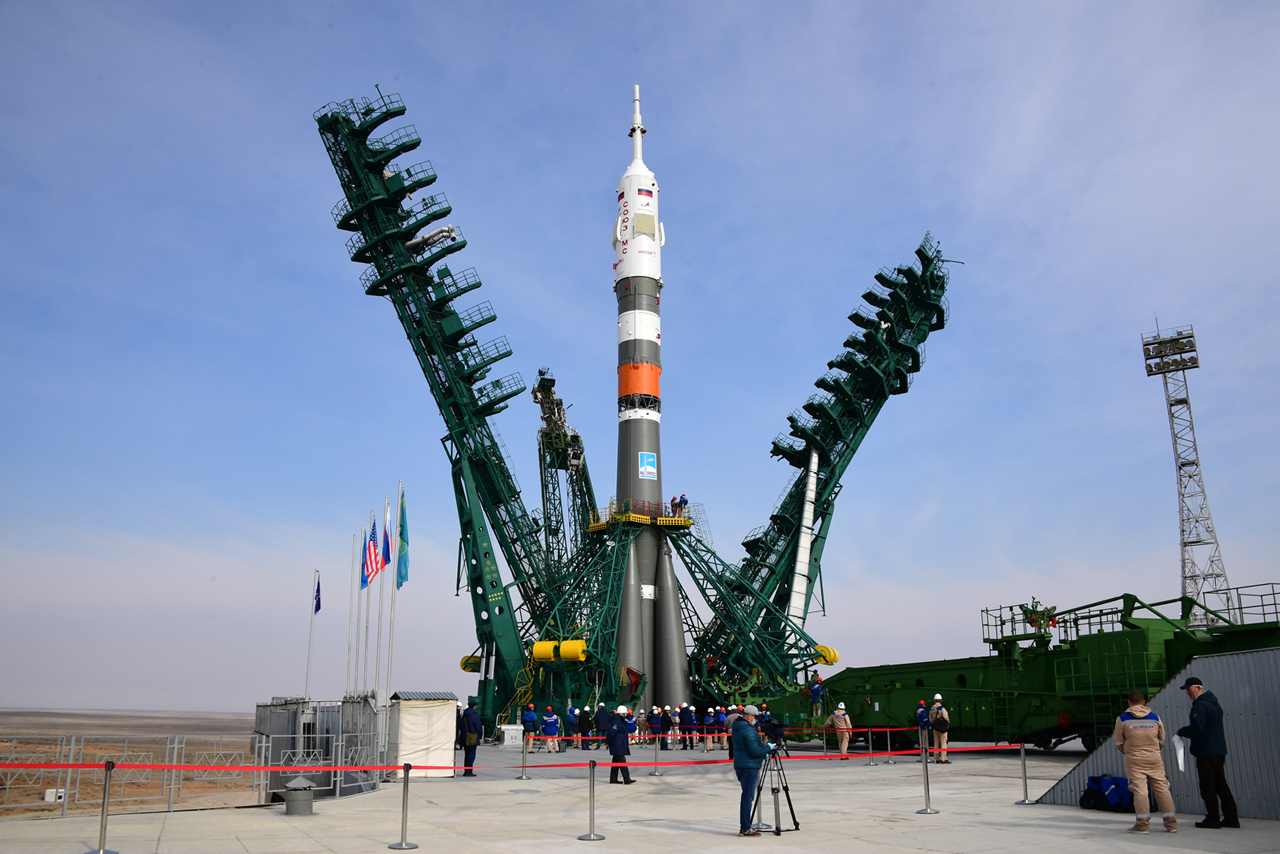NASA to pay Russia $90 million for a Soyuz seat on a crew launch this fall

NASA has struck a deal with its Russian counterpart, Roscosmos, to buy a seat on a Soyuz crew launch this fall, bumping a cosmonaut from that flight in return for $90 million and a bit of cargo on a U.S.-built spacecraft..
The agreement, which NASA announced yesterday (May 12), comes just as the space agency prepares to launch two astronauts on a U.S. rocket for the first time since 2011, when the space shuttles retired. On May 27, Bob Behnken and Doug Hurley will step aboard a SpaceX Crew Dragon capsule for a test flight to the International Space Station. But that flight has been a long time coming: NASA signed contracts with SpaceX and a second company, Boeing, in 2014. And as the companies have designed, built and tested their vehicles, NASA has paid Roscosmos to ferry astronauts to the orbiting laboratory — this fall for the last time, the agency hopes.
"NASA has high confidence that U.S. commercial crew providers will be available in 2020/2021 and that no further Soyuz seat purchases will be necessary," NASA spokesperson Stephanie Schierholz told Space.com in an email. "This modification to the Roscosmos contract is to ensure continued U.S. presence aboard the space station as we transition to sustained commercial crew transportation operations."
Related: In photos: Expedition 62 on the International Space Station
NASA has not yet announced who will fly in the newly purchased seat, but they will join two Russian cosmonauts in relieving the current space station crew of their responsibilities. The station's current Expedition 63 crew is also composed of one NASA astronaut, Chris Cassidy, and two Russian cosmonauts, Anatoly Ivanishin and Ivan Vagner.
Before the deal was negotiated, Russia had planned to fly three cosmonauts on the fall launch to support the upcoming launch and docking of a new Russian Multipurpose Laboratory Module, called Nauka, to the orbiting laboratory, NASA officials said.
To compensate for that missed opportunity, in addition to the $90,252,905.69 payment, Schierholz told Space.com. NASA has also agreed to ship about 1,800 lbs. (800 kilograms) of Russian cargo to the orbiting laboratory on U.S. cargo ships over the course of the next 2.5 years.
Get the Space.com Newsletter
Breaking space news, the latest updates on rocket launches, skywatching events and more!
Russia's Soyuz capsule carries limited cargo, but the country's Progress freighter makes regular supply runs to the space station. NASA contracts with SpaceX and Northrop Grumman to deliver cargo to the orbiting laboratory on their Dragon and Cygnus capsules. A third U.S. company, Sierra Nevada Corp., also has a NASA cargo contract for its Dream Chaser space plane currently under development.
Once the commercial crew program is fully operational, NASA plans to continue launching astronauts on occasional Soyuz spacecraft. However, rather than pay for the privilege, the agency intends to trade, passing along to Roscosmos seats on SpaceX and Boeing flights. Cosmonauts are not yet booked on any such flight, but SpaceX's first operational crew mission will carry three NASA crewmembers and one Japanese astronaut.
- In photos: SpaceX's Crew Dragon Demo-2 mission to the International Space Station
- After Demo-2: SpaceX is already prepping for 1st operational Crew Dragon mission
- Take a walk through SpaceX's Crew Dragon spaceship
Email Meghan Bartels at mbartels@space.com or follow her @meghanbartels. Follow us on Twitter @Spacedotcom and on Facebook.
OFFER: Save 45% on 'All About Space' 'How it Works' and 'All About History'!
For a limited time, you can take out a digital subscription to any of our best-selling science magazines for just $2.38 per month, or 45% off the standard price for the first three months.
Join our Space Forums to keep talking space on the latest missions, night sky and more! And if you have a news tip, correction or comment, let us know at: community@space.com.

Meghan is a senior writer at Space.com and has more than five years' experience as a science journalist based in New York City. She joined Space.com in July 2018, with previous writing published in outlets including Newsweek and Audubon. Meghan earned an MA in science journalism from New York University and a BA in classics from Georgetown University, and in her free time she enjoys reading and visiting museums. Follow her on Twitter at @meghanbartels.










